unitedlaunchalliance
Latest

Jeff Bezos' Blue Origin beats key rival to rocket engine deal
Blue Origin is best known for its own rocket programs, but it just scored a deal that could make it an important name in the spaceflight industry. United Launch Alliance has chosen Blue Origin's BE-4 engine (two of them, to be exact) to power the booster stage its next-generation Vulcan Centaur rocket, which is due to launch in mid-2020. Jeff Bezos' outfit won't be the only rocket vendor involved, but it crucially beat out Aerojet Rocketdyne -- a behemoth in the industry that had tried to pressure ULA into avoiding Blue Origin tech altogether.
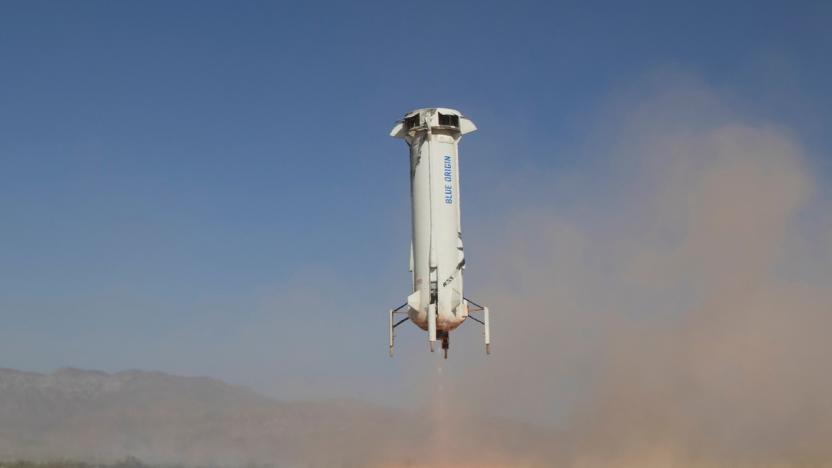
NASA picks for 'tipping point' space tech include Blue Origin and ULA
NASA's current administrator is rather fond of private spaceflight, and that's reflected in the agency's latest round of technology funding. The organization has forged ten partnerships that will develop "tipping point" tech promising to help both NASA's own missions as well as the "commercial space economy," including interplanetary exploration and satellites. Some of the names on the list are very familiar, and you'll find a couple of clear favorites.
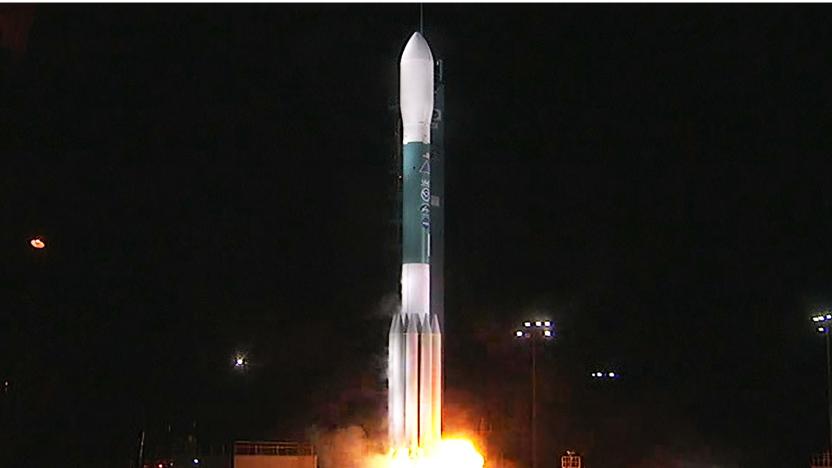
NASA satellite launch promises accurate week-long forecasts
NASA and NOAA know that multi-day weather forecasts can be crucial to tracking hurricanes and their aftermath, and they're about to significantly boost the reliability of those forecasts. They just launched JPSS-1 (Joint Polar Satellite System-1), the first of a series of NOAA satellites that should improve the accuracy of weather forecasts extending as long as a whole week. It includes five upgraded instruments (including an infrared imaging sensor and a microwave sounder) that can track weather-influencing factors with exacting detail, such as atmospheric temperature, clouds, ice cover, ocean colors and volcanic ash.
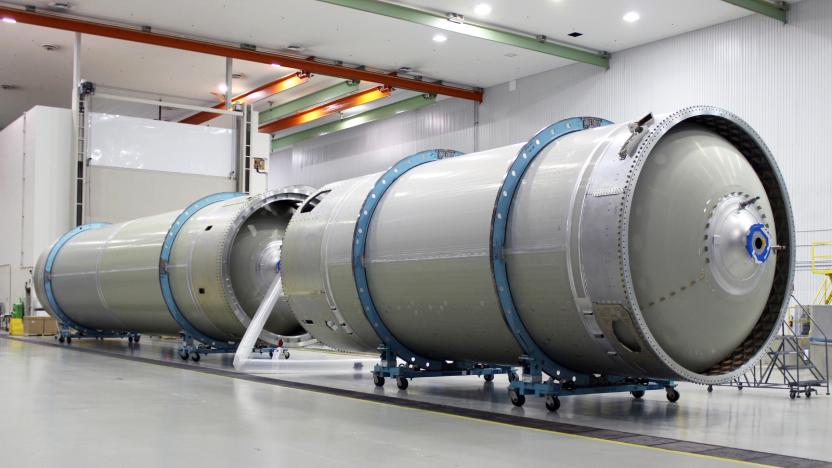
Boeing builds towards its first space taxi test
When NASA first named Boeing and SpaceX as recipients of the Commercial Crew Program, they originally aimed to end the agency's dependence on Russia by 2017. But developing space technologies is hard, and both companies had to push their first crewed test flights to late 2018 -- some reports even say they'll be delayed until 2019. While it's still unclear when we'll see the first space taxi blast off, Boeing has at least begun putting together the Atlas V rocket that will ferry the CST-100 Starliner taxi to orbit for the very first time.
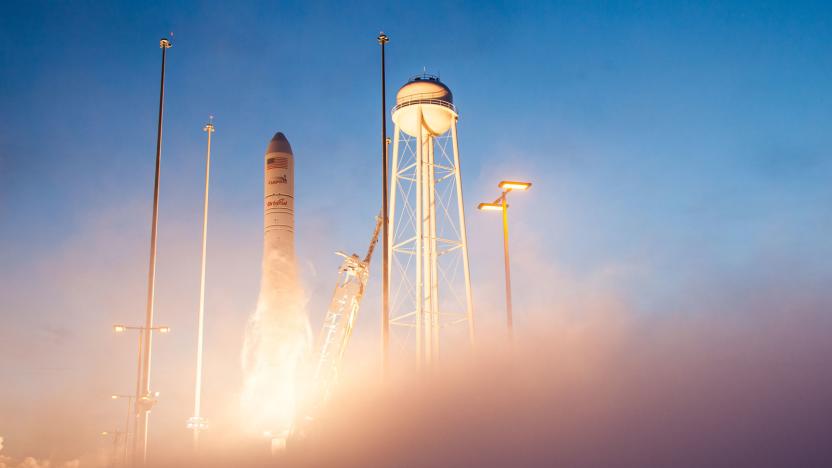
Senate alters sanctions to allow use of Russian rocket engines
Don't look now, but American spaceflight just dodged a bullet. Senators have passed an amendment to an Iran-Russia sanctions bill that, if gone unchecked, would have barred both NASA and private outfits from using Russian rocket engines. The original measure was supposed to prevent purchases from organizations that work with Russian defense and intelligence, but it would have effectively banned imports of the common RD-180 engine (found in ULA's Atlas 5) and RD-181 (used in Orbital ATK's Antares).
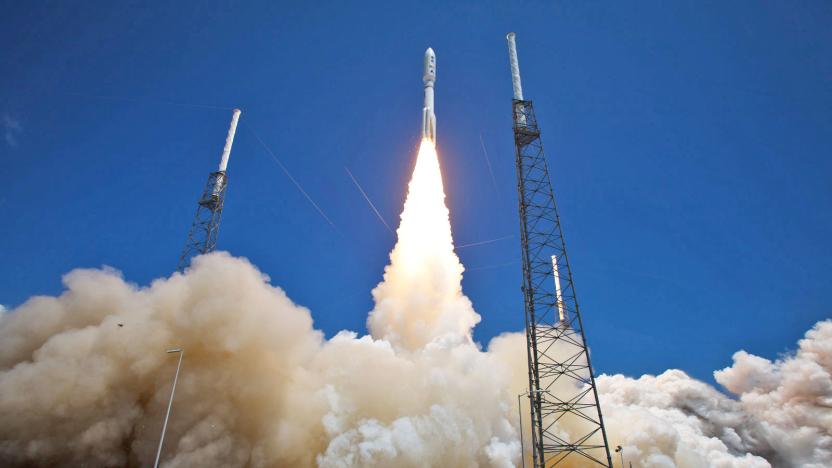
Watch NASA's first 360-degree live stream of a rocket launch
Rocket launch videos are typically captured from afar, putting you in the shoes of a spectator in the crowd. NASA's live coverage of an Orbital Cygnus spacecraft's ISS resupply mission, however, will take you to the launch pad itself. For the first time ever, the agency will broadcast a live 360-degree video of a rocket launch on the NASATelevision YouTube channel tomorrow, April 18th.
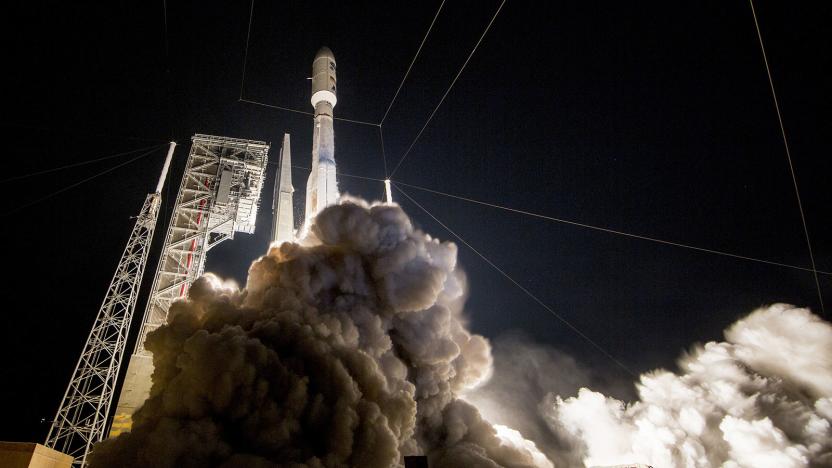
ULA justifies pricey space launches with 'RocketBuilder' site
The United Launch Alliance (ULA) Atlas V is the world's most reliable rocket, with a 100 percent mission success rate over 67 total missions. However, at a base launch rate of $109 million, it's a lot more costly compared to newcomer SpaceX, which has a starting price of $62 million. The raw launch is not the only cost, though, so ULA launched the RocketBuilder website to let potential clients, the press, academics and students configure a rocket like "building a car."

Watch the US launch a next-gen weather satellite at 5:10PM ET
If all goes according to plan, the US is about to enter a new era of weather tracking. The United Launch Alliance is scheduled to launch the first instance of GOES-R (Geostationary Operational Environmental Satellite), the US' next-generation weather observer, at 5:40PM Eastern (live NASA coverage starts at 5:10PM). The new satellite not only captures sharper images width more wavelengths, but takes those snapshots at a much higher frequency that promises to change how meteorologists and climatologists track environmental conditions.

Boeing and Jeff Bezos move closer to putting US rockets in orbit
United Launch Associates (ULA), the rocket enterprise from Boeing and Lockheed, has ramped up its commitment to Jeff Bezos' Blue Origin rocket engines. The two companies agreed to expand production capability of Origin's BE-4 rocket motor, "an important step toward building (them) at the production rate needed for the Vulcan launch vehicle," said Bezos. Last year, the two companies formed a pact to develop an engine that that can replace the Russian-built RD-180 engines originally planned for Vulcan -- ULA's successor to the Atlas V. Due to a US congressional ban on Russian products, ULA can no longer purchase RD-180s.

$2 billion rocket company merger could create giant SpaceX rival
United Launch Alliance is a joint-venture between Lockheed Martin and Boeing that launches spy and navigation satellites for the Pentagon and Air Force. Now, the firm is the subject of a $2 billion bid from engine business Aerojet Rocketdyne, a company that's been snubbed in its attempts to power the Atlas V. If the government's shadowy army of intelligence analysts and accountants approve the deal, it could create a new aerospace behemoth that could leave Elon Musk shivering out in the cold.

Air Force certifies SpaceX to bid for military space missions
Making peace with US Air Force and dropping charges against the agency has paid off for SpaceX. Its Falcon 9 rocket has finally been certified, giving the company the right to compete for national security launches. Elon Musk's space corp has passed every requirement set by the Air Force, after a couple of years (and a few months of delay), lots of paperwork and tests. According to Air Force Secretary Deborah Lee James, this certification allows more than one provider to compete for military launches, which is expected to cost the branch $70 billion until 2030, for the first time in around a decade. "Ultimately, leverage of the commercial space market drives down cost to the American taxpayer and improves our military's resiliency," she said in a statement.
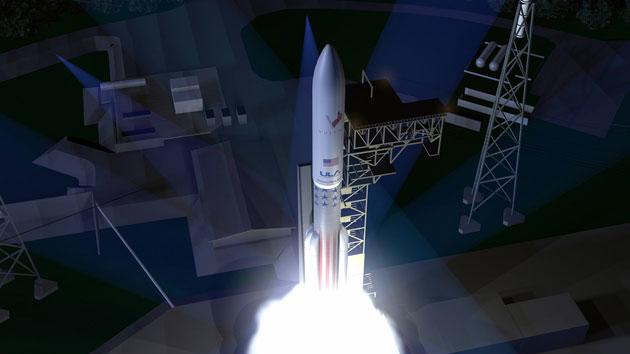
Here's the next rocket that will carry US satellites into space
You may not be familiar with United Launch Alliance, but it's about to handle a large chunk of US space launches -- and that makes the rocket you see above particularly important. That's Vulcan, ULA's newly unveiled launch system for satellites and similar payloads. The two-stage vehicle is designed to be the "most cost-efficient" rocket of its kind, helped in no small part by new recovery tech (Sensible Modular Autonomous Return Technology, or SMART) that captures the booster main engines in mid-air. Vulcan also eliminates an earlier dependence on Russian powerplants by relying on low-cost, reusable liquid natural gas engines from Jeff Bezos' Blue Origin. You probably won't be happy with this machine if you're rooting for SpaceX, but it'll be a big deal if its affordable design gets more equipment into orbit and beyond.



